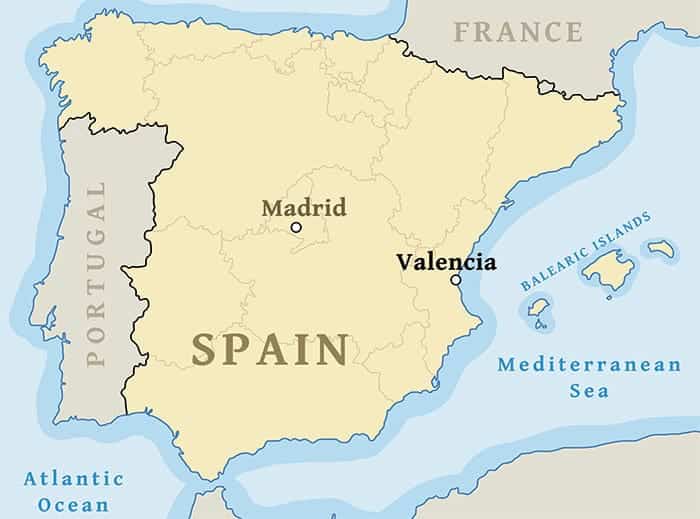12 Horses Dead From EHV-1 Outbreak in Europe

The death toll has risen to 12 in the equine herpesvirus-1 (EHV-1) outbreak that began at an international jumping competition in Spain in February. Competition organizers and scientists are scrambling to understand the details leading up to the crisis.
The outbreak includes neurologic cases and is “very, very aggressive,” said Göran Akerström, DVM, veterinary director of the Fédération Equestre Internationale (FEI).
Since The Horse’s previous report on March 4 of six horse deaths, two more at the Valencia hospital have occurred, as well as one in Barcelona and one in Germany, the FEI reported.
Nearly 200 horses remain quarantined at the competition venue in Valencia by government officials in Spain, where EHV-1 is a reportable disease, said Anne Couroucé, DVM, PhD, Dipl. ECIEM, of the International Horse Health Center (CISCO), in Nantes (Oniris), France. The French Equestrian Federation (FFE) commissioned Couroucé to provide support on-site in Valencia.
Animal health authorities also found a related case at the Spanish Sunshine Tour, an FEI competition scheduled Feb. 9–Mar. 28 in Vejer de la Frontera. This led to the event’s cancellation, the FEI reported. Other FEI events throughout Europe had already been canceled, but officials allowed this ongoing jumping tour to continue “in a bubble” on the condition that no cases were found and no new horses entered the venue. Contrary to the situation in Valencia, however, horses at Vejer de la Frontera are being allowed to return home.
Determining Where the Outbreak Started
Meanwhile, scientists are searching for the outbreak’s source, said Akerström. “We are (contact) tracing—that work started immediately,” he told The Horse. Current investigations point to a probable index case on Feb. 1, even though the first official case was a French horse that tested positive in France, after returning home, on Feb. 14. “We will continue to track backward from horses.”
Genetic testing by the Irish reference laboratory of the World Organisation for Animal Health (OIE), based in Paris, should provide information about the strain of this particular outbreak, Akerström said, which he noted is important because of its aggressiveness.
Despite the treating veterinarian suspecting and diagnosing EHV-1 that first detected case in France, it’s “probably, and even certainly, not with the French horses that this outbreak started,” said Couroucé. “I don’t think we’ll ever find the index case, but there were probably horses with fever in the first week of February. The first official case was a French horse, but it was most definitely not the first sick horse.”
Once the outbreak was confirmed as EHV-1, Spanish authorities placed the Valencia venue under lockdown. The ambiance at first was “difficult,” Couroucé said, especially because some horses were severely ill, and a few died. “It was complicated to deal with, for both riders and veterinarians,” she said.
Fortunately, practitioners at the University of Valencia’s equine hospital opted to take in the 18 most severe cases, she said. While this was a “relief” for the people at the venue, it came at a cost: The highly respected equine veterinary clinic closed its doors to any other outside patients—in essence, also becoming a quarantine center.
Among the neurologic cases, some are “mild,” Couroucé said, with horses having problems lifting their tails or urinating, unable to void their bladders for up to 48 hours. In more severe cases, however, the horses become ataxic, unable to coordinate their limb movements, and they fall down. Some of these horses die from the disease.
Getting Horses Out of Spain
Although the venue remains under government-mandated quarantine, the French Ministry of Agriculture has successfully negotiated with Spanish authorities to release 24 French horses—“even if they’re seropositive,” said Couroucé. “The ministry has convinced the Spanish government of our very stringent biosecurity,” she said.
This means no stopovers anywhere in Spain during transport. Once in France they will stop overnight in an undisclosed location “far removed from other horses” where they will benefit from constant veterinary surveillance. The next day, she said, they will all be transferred to Lamotte-Beuvron, the headquarters of the FFE and the site of the country’s national competitions. The horses will remain in quarantine under strict surveillance at the site until veterinarians clear them to leave the premises, she said. French horses should start leaving Valencia early next week, she said.
Other nations are now following the French example and soliciting the Spanish government to get their horses out of Spain, she said. If and when they receive authorization, French animal health authorities have said these horses can stay overnight in two dedicated holding centers in France, where strict isolation, disinfection, and veterinary monitoring are guaranteed.
The resting areas are particularly important for the health and welfare of these horses. “Some of them are traveling for three days to get home, to Sweden and Norway for example,” Couroucé said, noting the 3,500 km (about 2,175 miles or longer) drives. “They need a safe place to rest.”

Written by:
Christa Lesté-Lasserre, MA
Related Articles
Stay on top of the most recent Horse Health news with












